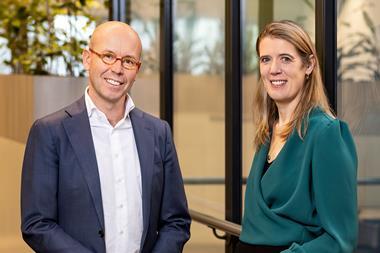Pension funds and other institutional investors in the DACH region – Germany, Austria and Switzerland – have signed up for the first cross-asset private markets strategy launched by Allianz Global Investors (AllianzGI) yesterday through a Core Private Markets Fund, a spokesperson for the asset manager told IPE.
The Core Private Markets Fund gives investors access to private equity, corporate private debt, infrastructure equity and infrastructure debt investments alongside Allianz, it said.
Investors can build a diversified portfolio across geographies, segments, vintage years and sectors, it added. The fund is targetting €3bn to generate mid-range single-digit returns, according to AllianzGI.
Limited partners (LPs) can invest in private markets through a fund offering quarterly liquidity, but subject to certain restrictions for redemptions and capital calls options, it said.
AllianzGI currently manages around €90bn in private market assets, aiming to reach €100bn AUM by the end of 2024, assisted by Allianz Group and Allianz Capital Partners (ACP), chief executive officer Tobias Pross said during an event organised by the asset manager in Berlin last week.
Reaching the target
The asset manager plans to reach the €100bn mark in private markets by launching new strategies, deploying fresh capital, and benefitting from the appreciation in value of part of the portfolio, global head of private markets Emmanuel Deblanc told IPE on the sidelines of the event last week.
New strategies include impact credit, he said, adding that private credit is more opportuinstic compared with, for example, infrastructure debt.
Total assets in private credit stand at €30bn, including European private credit (€9bn), a fast-growing strategy in Asia, and through fund of funds for about €4bn, said Damien Guichard, head of European private credit at AllianzGI.
Rising interest rates put pressure on private credit portfolios, and as a result the performance of asset managers will differ, Guichard said. He added that AllinazGI is observing consolidation in the space among asset managers, and segmentation.
“Now we are seeing a more diversifying offering, some asset managers going for mezzanine and some going for a slightly more conservative approach, [like] senior lending,” he said, adding that investor appetite for the asset class remains despite a slight slowdown last year and partly this year.
Infrastructure and energy transition
The asset manager approaches infrastructure through direct investments in core infrastructure and renewable projects primarily in Europe, and through a global indirect strategy, said Yves Meyer-Bülow, head of infrastructure fund and co-investments at Allianz Capital Partners. He added that the strategy is also open to external clients through funds and mandates.
AllianzGI manages about €25bn in infrastructure debt, bringing AUM in the segment to more than €50bn if combined with infrastructure equity and renewable investments, Deblanc said.
“We have experienced probably more growth than other private credit platforms on the back of our investors’ appetite, but also these were the highest growth markets within private markets, real estate being more mature,” he added.
Going forward, the main priorities are infrastructure and the energy transition. “Energy transition was maybe 10-15% of our pipeline back in 2018-19, now it is at the core of what we are doing,” Deblanc said.
The latest digital edition of IPE’s magazine is now available























